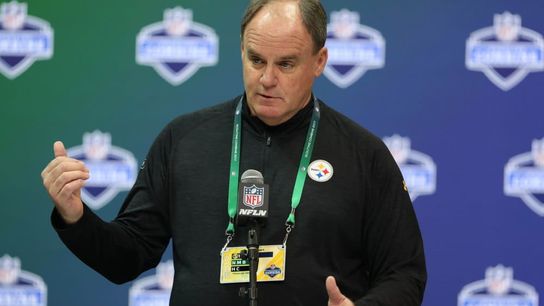Leaving college football for the NFL, we're often reminded, is a business decision. That's never been more obvious than it is right now.
A number of players have decided to opt out of the 2020 college football season in order to prepare for the 2021 NFL Draft. For some, like Oregon offensive tackle Penei Sewell, who announced Monday, this is a relatively simple call. Oregon is not playing this fall, and Sewell's status as 2021's top offensive lineman is secure. He's one of the rare gems who truly had nothing left to prove at the college level.
But Sewell is far from alone. Even players whose teams are playing this fall -- like LSU wide receiver Ja'Marr Chase -- are opting out.
And as these players ponder the biggest business decision they'll ever make, to truly understand the weight of what's in front of them, they must understand risk is a two-sided coin.
There is, of course, the risk of playing. Any player who suffers in an injury in their final college season is certain to pay for it at draft time -- and doubly so if that injury happens in the spring. A fourth-round prospect that suffers, say, a torn Achilles in March may go completely untouched come Draft time, since an NFL team would know they'd get nothing from him his rookie season. And this says nothing of the associated risks of catching COVID-19 or unknowingly spreading it to a loved one.
But there is another risk here, one that doesn't get discussed as much but must be reckoned with all the same -- the risk of not playing.
Every single player, save for perhaps Sewell and maybe Trevor Lawrence, must submit himself to the rat race that is the NFL draft process. Their games are poked, prodded and picked apart down to the finest detail. If they don't find a flaw (and, rest assured, they will), they'll invent one. Once all that is done, your résumé is pegged to the wall and compared against everyone else's.
Even players like Chase, the reigning Biletnikoff Award winner, must sing for his supper come draft time. A certain first-round pick will have to scrap and claw to become the top option at his position. Double that for guys looking to move up from the second round to the first, or a Day 3 guy angling to move to Day 2, or a fringe prospect hoping to hear his name called at all.
For those guys, every day is a job interview and NFL general managers will be watching -- you, or your competition.
“The one thing, the conferences that chose not to play, and the players that opted out, we understand all that. Obviously, they are doing it for safety and health, first and foremost, and we respect that. However, the players that get the opportunity to play and choose to play, we feel more comfortable in their evaluations,” Pittsburgh Steelers general manager Kevin Colbert told The Ringer. “Because I just don’t know, sitting out a year, what those players are going to look like having missed the season. There’s just not a real natural source of information saying, ‘Well, when this player sits out, he’ll be this’ because we just don’t know. We respect the fact that they aren’t playing, but we also have to make the best decisions and I think the best decisions we’ll be able to make are the ones where we can see them play in 2020.
“If there are two players that are close or equal, we’ll take the one that has played most recently. We’re hopeful that the other conferences get up and running. If they do, we’ll add that to the evaluations. If they don’t—again, all we have is 2019 and we’ll make the best decisions we can.”
Of course, this isn't to say that only players who play in 2020 will be drafted. That's simply not possible.
But even guys who get drafted -- and, more importantly, drafted in a slot they feel is worthy of their talents -- also take on a simple, unavoidable risk: you can make yourself a better football prospect by skipping a year of football games to do nothing but lift and run, but you can't become a better football player in the weight room alone.
The NFL is a dog-eat-dog world where the average career lasts less than a presidential term and the real, set-for-life money doesn't come until you get to your second contract. How many rookies can reasonably expect to contribute to their teams in September 2021 after not playing a real football game since December 2019?
This isn't to say one decision is wrong and the other is right. It's a business decision, and also a personal one -- made in a time no one could have ever foreseen before 2020. But every prospect staring down this monumental, unprecedented decision is doing himself a disservice if he doesn't spend a lot of time staring down both sides of this coin.
